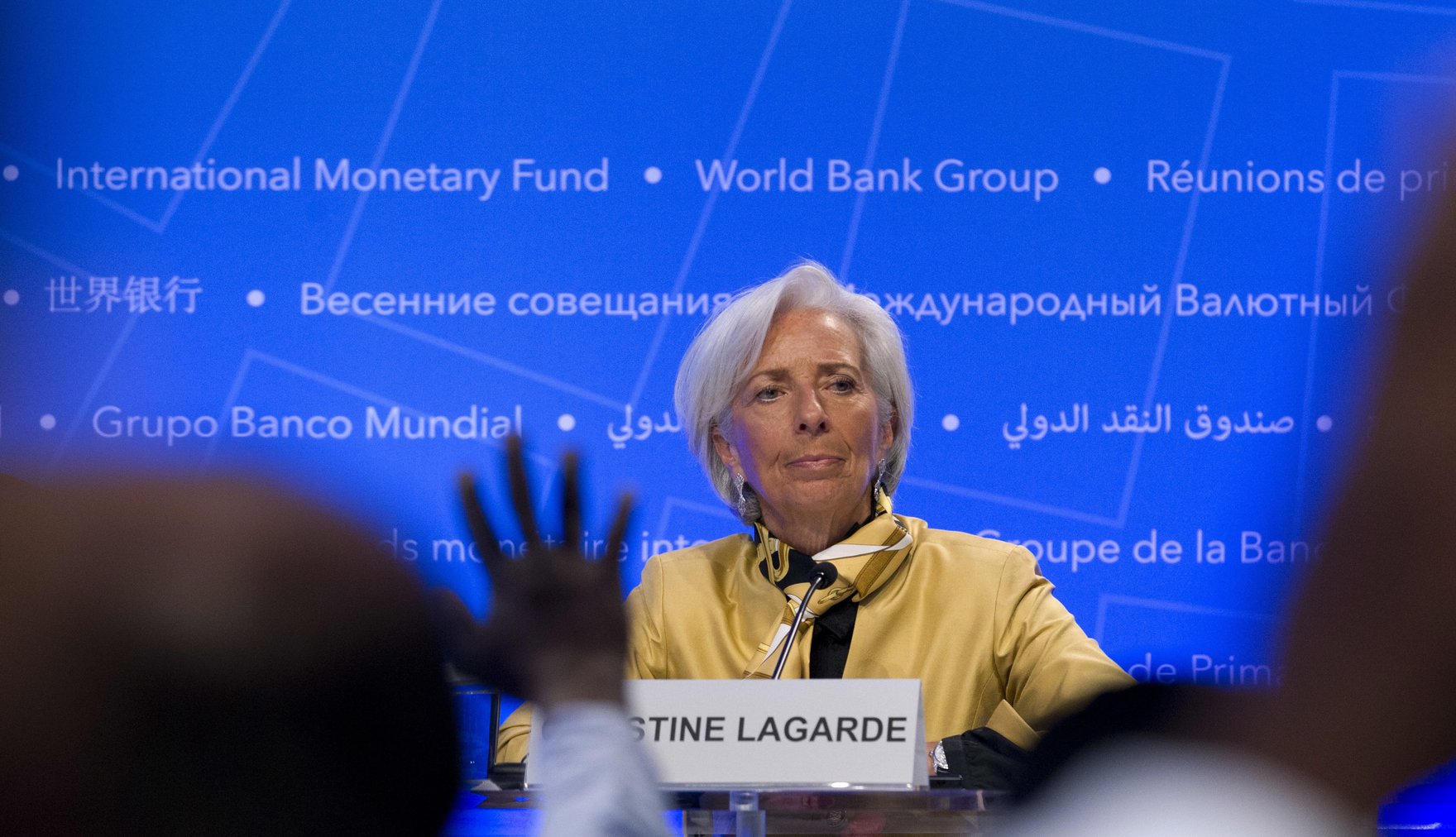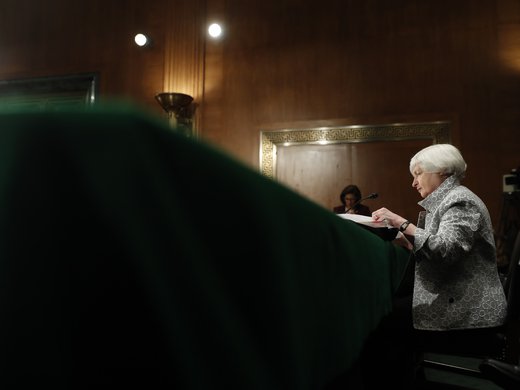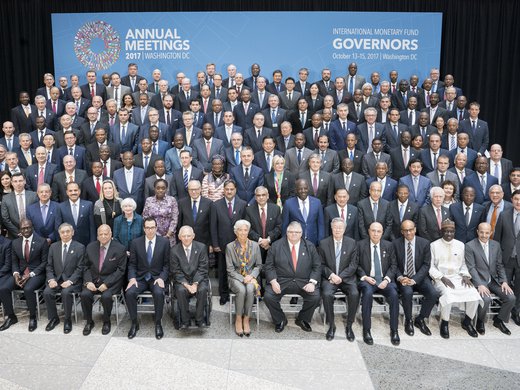There is an argument that interest rates need to rise much faster than they are so that central banks will have ammunition to fight the next recession.
It’s a seductive idea, especially these days.
Last week, the International Monetary Fund (IMF) published its most optimistic economic outlook in years. Instead of savouring the moment, it used its spring meetings in Washington, DC, to urge its members to use the good times to get ready for the next crisis.
Monetary policy still is highly stimulative. Lawrence Summers, a Harvard economics professor and former US Treasury secretary, has calculated that the Federal Reserve typically drops interest rates by five percentage points during a recession. That would be impossible today, as the Fed’s benchmark rate currently is around 1.75 percent. David Lipton, the second-in-command at the IMF, brought up Summers’s observation in front of an audience on April 20. He didn’t say explicitly that he thought interest rates should rise. Instead, Lipton simply noted that most central banks are a long way from being able to cut interest rates by five percentage points.
Don’t expect the central banks to play along because most think they still have a lot of work to do.
“If you took that prop away, you could cause the very thing you are trying to load up your ammo for, right? So it’s not much help,” Bank of Canada Governor Stephen Poloz told a small group of journalists in Washington on April 21. “If you are going to cause your economy to slow down just so you can get your interest rates up, you’re not really making much of a contribution, and you’d be introducing downside risk on your inflation outlook all by yourself by tightening too quickly, or too early.”
Bank of Ireland Governor Philip Lane made the same point during a panel discussion on economic booms and busts. He said he doesn’t understand why one might depress the economy in the short term simply to be better positioned to cut interest rates at some point in the future.
“Our job is to keep the economy on the path that it’s on,” Lane said.
Central banks’ refusal to be rushed underscores the difficulty of the task the IMF set for itself last week. The Fund was both a provider of hope and a killjoy at the meetings. The Fund predicted that only a handful of its members would suffer recessions this year, meaning most of the world’s economies will be adding to the global economy simultaneously for the first time in memory.
Yet, the IMF’s leaders used every opportunity to express their doubts that the current rate of global economic growth was sustainable. The forecasters said their upward revision to the outlook was based mostly on US President Donald Trump’s tax cuts, which they described as unnecessarily stimulative, given the country’s already very low unemployment rate. The tax cuts will increase the US budget deficit, which will eventually have to be constrained with measures that hurt economic growth, the Fund said.
Christine Lagarde, the managing director, said too little had been done to encourage sustainable economic growth by improving productivity. She also said finance ministers and central bankers should worry about a record level of global debt, elevated asset prices and a broad weakening of the global cooperation. “We are seeing more clouds accumulating on the horizon than we did back in October,” she told reporters on April 19.
The IMF is doing the right thing by fighting against complacency. Still, there are risks in describing a bright outlook in such dark terms. The Fund could depress the animal spirits that central bankers such as Poloz have been trying so hard to stoke in recent years. And if that happens, central bankers will feel compelled to leave interest rates low for longer.
“Given where we’ve been for at least the past five years or so, it’s very natural to be still preoccupied with that downside risk,” Poloz said at one point during his meeting with reporters at the IMF meetings. Later, he expanded on that idea in the context of criticism he receives for inflating housing bubbles. His comments revealed the difference in perspectives of practitioners and outsiders.
The financial crisis “seems like a long time ago, but we’re still actually climbing that same hill,” Poloz said. “We need to get the job done. We’re at the intersection, but we wouldn’t be there without policy. The economy wouldn’t be there if it weren’t for the effect that policy is having.”
Lagarde talks about fixing the roof while the sun is shining. Poloz and many of his counterparts are still worried about the foundations.



